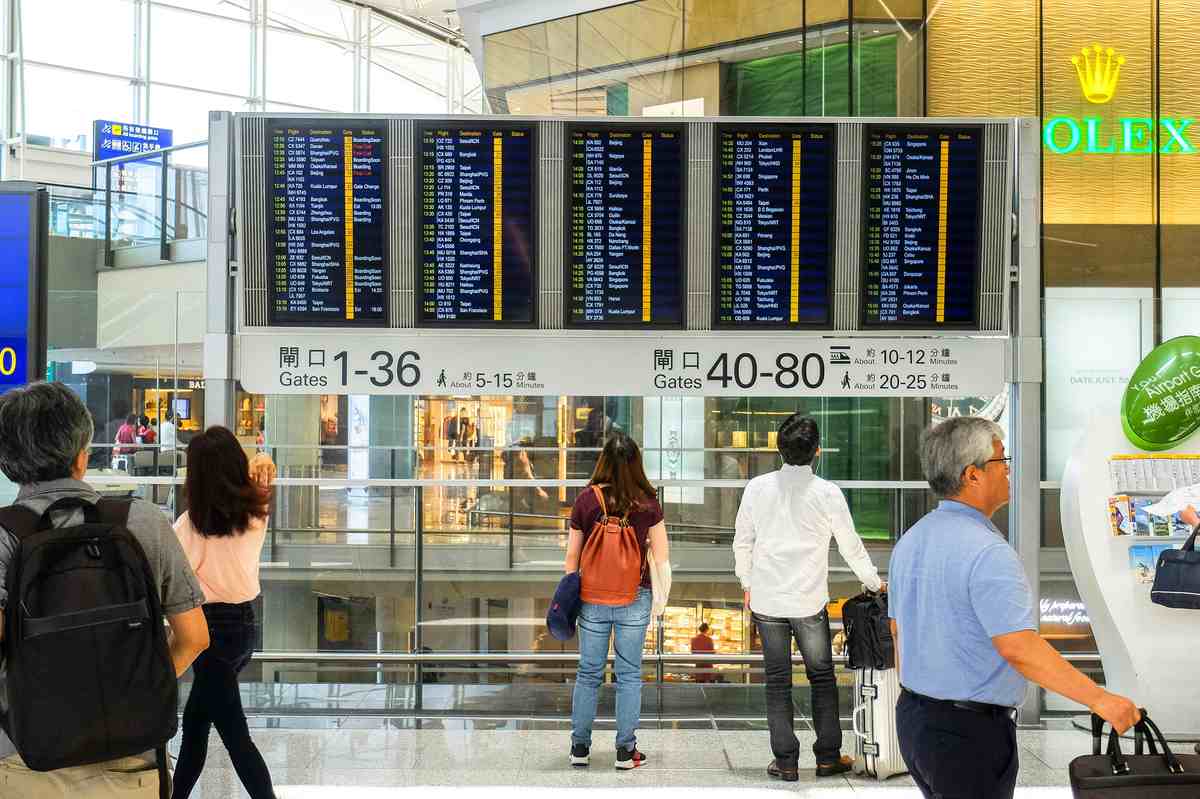(NEW YORK) A 20-year-old Purdue University pharmacy student, Yeonsoo Go, was detained by ICE after a routine immigration hearing in New York, then released on August 4, 2025, following public outcry and advocacy. She has returned to Purdue and, as of August 7, faces no further legal action.
Go, a South Korean national, entered the United States 🇺🇸 legally on a religious worker’s dependent visa tied to her mother’s ministry. Her visa is valid through December 2025. Family, Indiana officials, and faith leaders say she complied with the law and had no criminal record. ICE hasn’t explained why she was detained or why it transferred her from New York to a Louisiana detention facility before release.

Indiana State Representative Chris Campbell called the detention “absolutely horrifying” and pressed for immediate release. Leaders in the Episcopal Diocese in New York, where Go’s mother serves as a priest, also pushed hard. Purdue expressed support and connected Go with immigration counsel. The case raised fresh concerns about how ICE handles students with valid visas and whether protocols account for dependent and religious visa categories.
According to analysis by VisaVerge.com, intermittent detentions of valid visa holders, while not common, do occur when databases, status checks, or record updates lag or conflict. Advocates warn these gaps can harm students and families who follow the rules but fall into gray areas during enforcement.
What we know about the visa: Go holds a dependent status linked to a religious worker parent. In most cases, religious workers are admitted under R-1 status (for the worker) and R-2 status (for dependents). R-2 dependents cannot work but may study. If a student like Go also studies full time at Purdue, this can be lawful, provided she maintains dependent status and does not violate terms such as unauthorized work. University international offices often verify status at enrollment but don’t control ICE decisions.
Advocacy groups say this detention underscores two long-running issues. First, students on dependent visas, including R-2, rely on a family member’s ongoing status. Any confusion about the principal’s status can ripple to the dependent. Second, agency transfers—like moving someone from New York to Louisiana—can separate people from their community and legal counsel, complicating a fast resolution.
Purdue confirmed it is assisting with legal representation. Community leaders in Indiana and New York stressed Go’s community ties, academic standing, and clean record. Supporters say those factors should weigh against detention when visa records show a valid status.
ICE offered no detailed public statement about the initial arrest or release decision. Without an official explanation, immigration attorneys familiar with these cases point to common triggers: mismatched records between systems, delays in updating status, or questions about the dependent’s eligibility. None of those, by themselves, prove a violation.
Students and families asked: Can this happen to others? Unfortunately, yes. Dependent and specialized categories—like religious worker visas—sit outside common student pathways such as F-1. That can confuse front-line officers if records aren’t crystal clear. The best defense is documentation and counsel. Keep a full set of immigration papers on hand and maintain regular contact with the university’s international office.
Practical steps for those in similar situations:
– Verify status and terms. For dependents, ensure the principal’s employment or ministry remains in good standing and documented.
– Keep copies of I-94 records, visa stamps, passports, and approval notices.
– If placed in proceedings, ask for an attorney and contact your school’s international student office immediately.
– If transferred to a distant facility, ask counsel to request a venue change to a local immigration court where possible.
Students should also know their rights during encounters. You can ask to speak with a lawyer. You should provide true information but avoid guessing if you’re unsure. If you have a hearing, arrive early with all documents. If you move, file a change of address with immigration authorities to avoid missing notices.
Universities play a key role. Purdue’s response—backing the student, coordinating with attorneys, and offering support—shows how schools can protect their international communities. International offices should review files for dependents who study, confirm any work restrictions, and prepare letters that explain visa terms in plain language for authorities, if needed.
Faith organizations and community groups helped in Go’s case. Their statements highlighted lawful status, church service, and community involvement. That broad support can make a difference, especially when agency decisions hinge on fast verification.
Policy implications extend beyond a single case. Lawmakers and advocates argue for clearer ICE protocols when the person shows a valid, unexpired visa and strong ties. They call for better information-sharing to reduce wrongful detentions. Some push for a “pause and verify” approach—confirm status before detention or transfer—especially for students.
For reliable government information on nonimmigrant visa categories, including religious workers and dependents, see the U.S. Citizenship and Immigration Services page on Nonimmigrant Religious Workers. It explains eligibility and conditions for R-1 workers and R-2 dependents, including study permissions and work limits, which can help families and schools prepare accurate records and proof.
If a student later wants to switch to F-1 student status, they usually file Form I-539, Application to Extend/Change Nonimmigrant Status, through USCIS. Check the official USCIS page for Form I-539 for instructions, fees, and current processing times. Filing does not guarantee approval, and the student must follow current status rules until the change is approved.
Community leaders hope Go’s release signals a willingness to reassess cases quickly when documents support legal presence. Still, families on dependent visas should act defensively: organize files, understand terms, and build a relationship with an immigration attorney before a crisis.
Three takeaways for students and families:
– Keep proof current and accessible. Store physical and digital copies of passports, I-94, approval notices, and university letters.
– Coordinate with your university. Ask the international office to review your status each term and provide a status summary letter.
– Have a response plan. Save contacts for legal aid, your school office, and trusted community leaders who can vouch for you.
For affected communities, this case reminds us that status clarity saves time and stress. For schools, it’s a prompt to train staff on dependent categories and to respond fast when students face detentions. For policymakers, it’s a call to improve verification systems and reduce transfers that distance people from counsel.
As for Yeonsoo Go, she’s back at Purdue, focused on coursework and routine. Her case shows how fast-moving enforcement can collide with valid visas—and how strong support, prepared documents, and legal guidance can bring someone home.
This Article in a Nutshell








